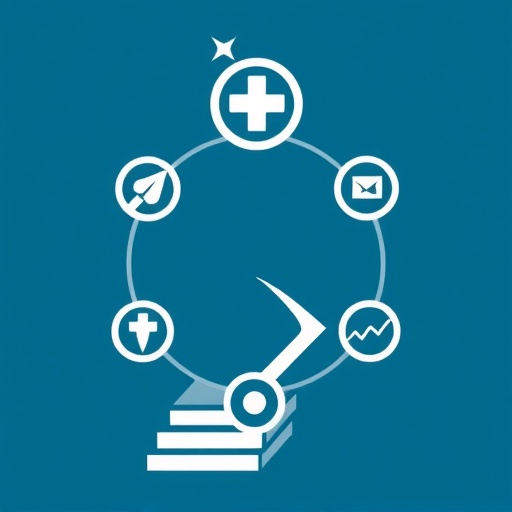The landscape of medical and pharmacy education is at the frontier of transformation, marked by a vital scoping review led by an interdisciplinary team comprising Bashirynejad, Soleymani, and Nikfar. Their study, set to be published in BMC Medical Education, reflects current trends and contemplates the future trajectory of these essential fields. As the healthcare landscape evolves rapidly, understanding how educational methodologies and frameworks must adapt is crucial for both current scholars and future healthcare professionals.
Medical and pharmacy education forms the backbone of healthcare systems worldwide, ensuring that practitioners are well-equipped to meet the challenges of modern medicine. With advances in technology, increased access to information, and shifts in patient demographics, educational institutions are tasked with cultivating an adaptable workforce. This review synthesizes existing literature to provide a comprehensive analysis of the current educational trends while also enlightening stakeholders about potential future directions.
In recent years, a wealth of literature has surfaced discussing innovative teaching methodologies within medical and pharmacy curricula, including the integration of simulation-based learning and problem-based learning approaches. These instructional strategies enhance student engagement and align closely with real-world medical scenarios. By reviewing diverse instructional frameworks, the authors assert that these pedagogical innovations not only improve learner outcomes but also prepare graduates to navigate complex clinical environments effectively.
Additionally, the proliferation of digital resources has revolutionized education in the healthcare fields. Online platforms and digital learning tools have made advanced and flexible education accessible for students worldwide. This review posits that the integration of these technologies fosters a more inclusive learning environment, bridging gaps that traditional educational models often overlook. The authors illustrate how leveraging technology can cater to various learning styles, ultimately enhancing the educational experience.
Furthermore, the globalization of medical and pharmacy education presents unique challenges and opportunities. As educational institutions increasingly collaborate internationally, understanding different cultural contexts becomes paramount. This scoping review emphasizes the importance of cultural competence within medical education. It suggests that curricula must not only impart technical knowledge but also prepare students for the cultural nuances they will encounter in their practice.
In alignment with global initiatives aimed at improving healthcare access and quality, the review also highlights the necessity for interprofessional education. By training healthcare students in multidisciplinary cohorts, programs can enhance collaborative practice, which is essential for patient-centered care. The authors argue that effective interprofessional education can significantly reduce medical errors and improve health outcomes, thereby directly benefiting patients.
The review identifies key areas for future research and implementation within medical and pharmacy education, advocating for the continuous evolution of curricula. Fundamental to this evolution is the adherence to evidence-based practices. As the healthcare field confronts emerging diseases, evolving technologies, and shifting patient needs, educators must be agile in their approaches. The scoping review underscores the imperative for curriculum developers to stay attuned to industry trends, ensuring that educational programs remain relevant and scientifically grounded.
Moreover, the authors analyze the increasing role of assessment and feedback in educational settings. They assert that formative assessment practices can facilitate deeper learning and mastery of clinical skills, encouraging students to reflect on their competencies and areas for improvement. As academic pressures mount, fostering a growth mindset among students proves essential for long-term success in their careers.
The exploration of diversity, equity, and inclusion within medical and pharmacy education is also a pivotal theme of this scoping review. Addressing disparities in healthcare requires a workforce that is representative of the communities they serve. The authors advocate for the recruitment of diverse student populations and the development of inclusive curricula that reflect varied perspectives. They propose that enhancing diversity in education will ultimately lead to more equitable healthcare delivery.
In considering the future of medical education, the review calls attention to the importance of flexibility and adaptability within educational frameworks. As the healthcare landscape evolves, so too must the training programs that prepare healthcare professionals. The ability to pivot and incorporate new findings, methodologies, and technologies will determine the success of future educators and their students.
The findings of this comprehensive scoping review provide a roadmap for educators, policymakers, and stakeholders within the fields of medicine and pharmacy. By aligning educational practices with contemporary healthcare needs, this research aims to catalyze discussions that lead to meaningful advancements. The insights shared will undoubtedly pave the way for innovative changes in training protocols, ultimately fostering a better-prepared workforce that can navigate the complexities of modern healthcare.
As this review garners attention within the academic community, it serves as a clarion call for reimagining medical and pharmacy education in a way that is responsive to the challenges of the 21st century. By advocating for a multidimensional approach to education that embraces technological advancements, cultural competence, and interprofessional collaboration, the authors champion a brighter future for healthcare education.
This imperative scoping review, positioned at the crossroads of insight and action, holds the potential to transform the educational experiences of future healthcare professionals. By positioning themselves at the helm of this discourse, the researchers contribute significantly to the ongoing evolution of medical and pharmacy education, ensuring that it meets the ever-changing demands of society.
As we look to the horizon, it is essential that all stakeholders in medical and pharmacy education heed the findings of this scoping review. The future of healthcare education is not merely about knowledge transmission; it is about fostering adaptable, resilient, and culturally competent practitioners who can thrive in diverse and complex environments.
Subject of Research: Trends analysis and future study of medical and pharmacy education.
Article Title: Trends analysis and future study of medical and pharmacy education: a scoping review.
Article References:
Bashirynejad, M., Soleymani, F., Nikfar, S. et al. Trends analysis and future study of medical and pharmacy education: a scoping review.
BMC Med Educ 25, 1527 (2025). https://doi.org/10.1186/s12909-025-08037-2
Image Credits: AI Generated
DOI: 10.1186/s12909-025-08037-2
Keywords: Medical education, pharmacy education, scoping review, trends analysis, interprofessional education, cultural competence, digital learning, curriculum development, assessment, diversity in education.




